Unlocking and Utilizing Gen-Z Shopping Habits

Shopping in the Age of Gen-Z
Gen-Z, the generation born between 1995 and 2010, is the largest group of consumers in the world today. Gen-Z currently makes up 27% of the US population. It is no secret that Generation Z is rapidly growing and making its presence known in the consumer space. This generation of shoppers has unique needs, expectations, and wants when shopping. Additionally, they influence their parents' buying habits as well. That is right; Gen-Zers have more influence over their parents’ spending than ever before. In order to effectively market to Gen-Z, companies need to understand how Gen-Z shops and what sets them apart from previous generations. But understanding Gen-Z shoppers is not as simple as it may seem – they are misunderstood and often underestimated. Companies must learn to listen, pay attention to the right cues, and incorporate these insights into their strategy without overwhelming customers or compromising their offerings.
The Shopping Habits of Gen-Z
Since Generation Z is so digitally native, they are used to shopping online more than any other generation before their time. They rely heavily on reviews, ratings, and recommendations from their peers when deciding what products to purchase. It is also essential for brands to remember that Gen-Z has a strong connection with social media platforms like Instagram and YouTube, which means they are very receptive to influencer marketing campaigns. It is also worth noting that although they shop online more often than not, Gen-Z still likes the experience of going into a store to make a purchase. They enjoy the tactile nature of touching and feeling a product before buying it. Gen-Z is slated to be the 2nd generation most likely to shop in-stores after baby boomers.
Gen-Zers Are Savvy Consumers
It used to be that parents were influencing their kids’ shopping habits, but now more and more Gen-Zers are influencing their parents. Gen-Zers are well aware of the power they possess when it comes to shaping their parents’ shopping habits. They are an incredibly savvy generation that knows what they want and how to get it. They know how to research products online, compare prices, and read reviews to find the best possible deal for any given product or service. It makes sense then that this tech-savvy generation is influencing their elders' purchasing. After all, if anyone knows the ins and outs of shopping online, it is Gen Z.
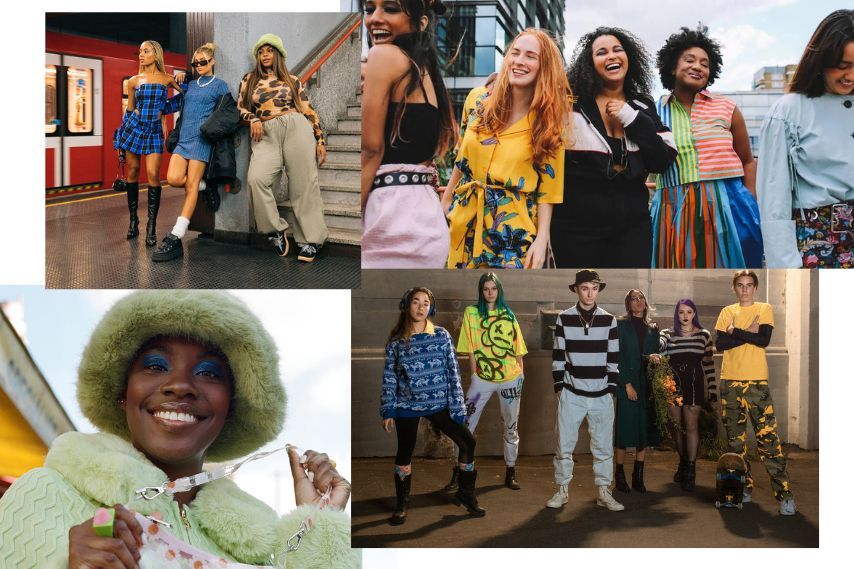

The Psychology Behind Gen-Z Shopping Habits
To understand what drives consumer habits for any generation, you look at the psychology behind it. If you want to engage with Gen-Z consumers, you have to know what motivates them on an emotional level. Studies show that this generation values authenticity more than anything else - they do not want flashy marketing campaigns or aggressive sales tactics - instead, they prefer genuine connections with brands that make them feel understood and appreciated.
The impact of Gen-Z on retail cannot be understated. Not only are they influencing what products people buy through social media platforms and utilizing clever shopping tactics, but they are also bridging generational divides concerning shopping preferences and styles. As older generations become more comfortable using technology and younger generations become more aware of traditional sales methods, retailers must adjust accordingly to keep up with changing trends.
Authenticity
In addition to authenticity, convenience is also an integral factor for Gen-Z shoppers. Gen-Z values convenience above all else. In addition to convenient delivery times, they also want payment options such as buy now, pay later, or subscriptions. Also, mobile payments offer faster checkout times than traditional methods, such as cash or credit cards. With advances in technology making online shopping easier and quicker, convenience plays a significant role in buying decisions for this generation of consumers. They want easy access to products whenever they need them - whether ordering online or finding a store nearby where customers can purchase what they need quickly and conveniently.
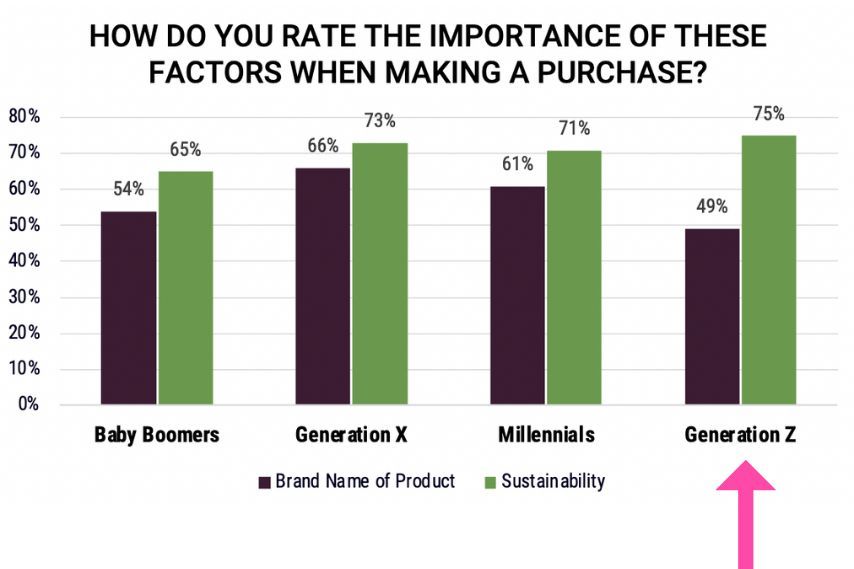

Sustainability
Sustainability matters to Gen-Zers, and they want their parents to care about it too. Whether buying ethically made clothing or investing in eco-friendly products, Gen Zers want their parents to be mindful of where they are getting their goods from and who they are supporting with those purchases. Many retailers are now offering more sustainable options to consumers due to this generational shift towards sustainability. Gen Z shoppers' influence on parents' buying habits is primarily responsible for this trend. Companies should prioritize sustainability initiatives such as eco-friendly packaging solutions as this resonates strongly with the environmentally conscious mindset of many in the younger generation today.
Social Media
Finally, social media plays a crucial role in influencing the purchasing decisions of Gen-Z consumers. Social media platforms like Instagram and TikTok provide unique opportunities for companies to reach out directly to their target audiences with compelling visuals and engaging content - which can be incredibly effective in building brand loyalty among Gen-Z shoppers. Additionally, social media plays a critical role in Gen-Zers’ ability to sway their parents’ buying habits. Platforms like Instagram and TikTok allow them to showcase all the latest new products they want—and even provide tutorials on how to use them. In general, it is helpful when trying to persuade older generations that may be reluctant to try out new technology or unfamiliar brands. Gen Z parents need to know they can trust the product recommended by their children.
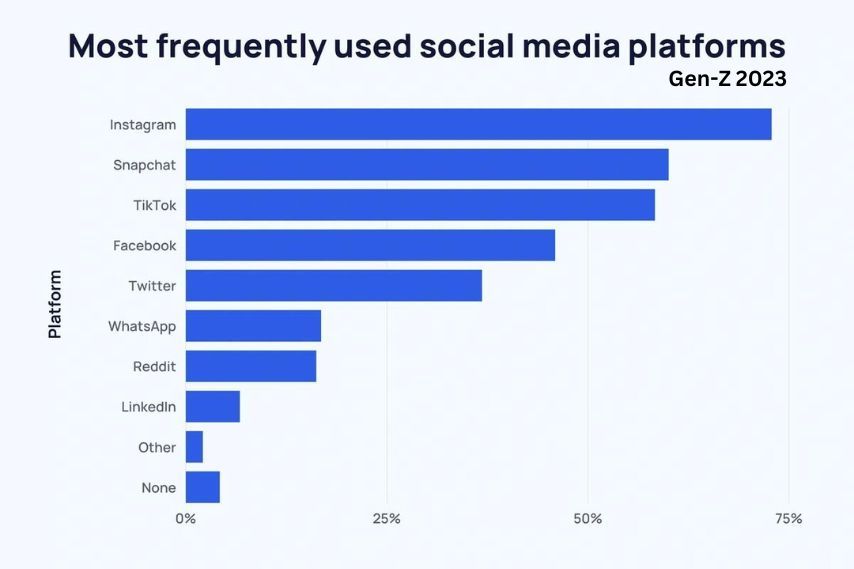

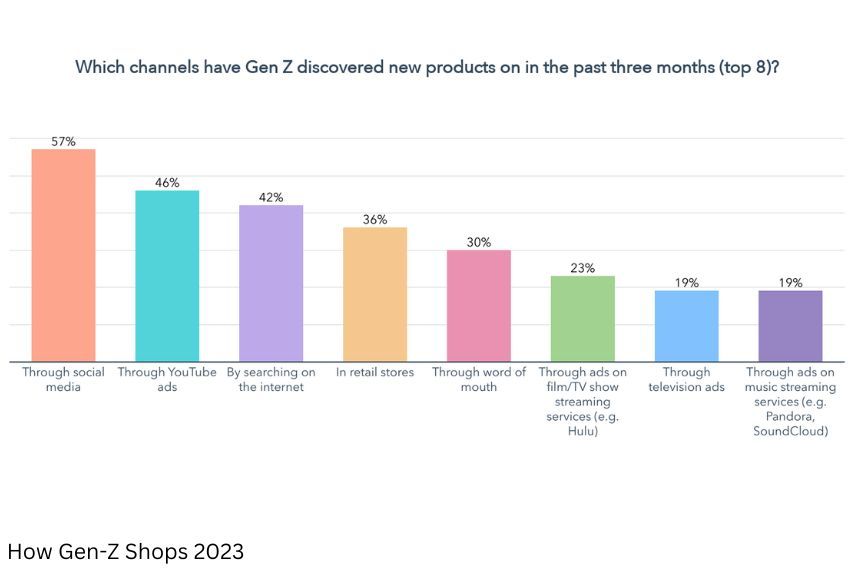

Gen-Z is nostalgic for older fashions
In recent years, the interest of Gen-Z shoppers in fashion trends from the early 2000s has been on the rise. As a generation that identifies as being concerned with nostalgic, vintage elements and looking back to bygone eras for inspiration, this trend makes sense.
The term Y2K or 2000's fashion generally refers to clothes and styles trends between 2000 and 2010 when there was an emphasis on simplicity and comfort with some exaggerated silhouettes. During this period, an anti-bling street style emerged consisting of baggy jeans, tracksuits, hoodies, sneaker sneakers, and oversized tops being popular. The decade distinguished itself by its eclectic aesthetic that combined casual looks with high fashion; think Juicy Couture tracksuits paired with Manolo Blahnik shoes.
One major factor driving Gen-Z’s interest in the 2000s is nostalgia for their childhood. Due to their memories of this time, many millennials gravitate towards retro items like low-rise denim jeans and velour tracksuits. They also appreciate the aesthetic of designer labels like Fendi, Gucci, and Prada. These labels were popular in the early 2000s but have since become even more luxurious and expensive. Additionally, they view these items as timeless classics that transcend current trends while still embodying a sense of style that resonates with them.
The affordability of vintage pieces from this era has also contributed to their popularity among Gen-Z shoppers. These items are much more accessible than their designer counterparts. These items are often unaffordable for most young adults on a limited budget. However, websites like Depop or platforms like Instagram allow users to buy used clothing from individuals anywhere at discounted prices.
Additionally, as millennials continue to embrace sustainability initiatives, such as thrifting or buying pre-loved clothing rather than buying brand-new clothing from fast fashion retailers, they tend to gravitate towards vintage styles originating from the past decades. These provide eco-friendly options since they do not contribute to further waste production or excessive consumerism.
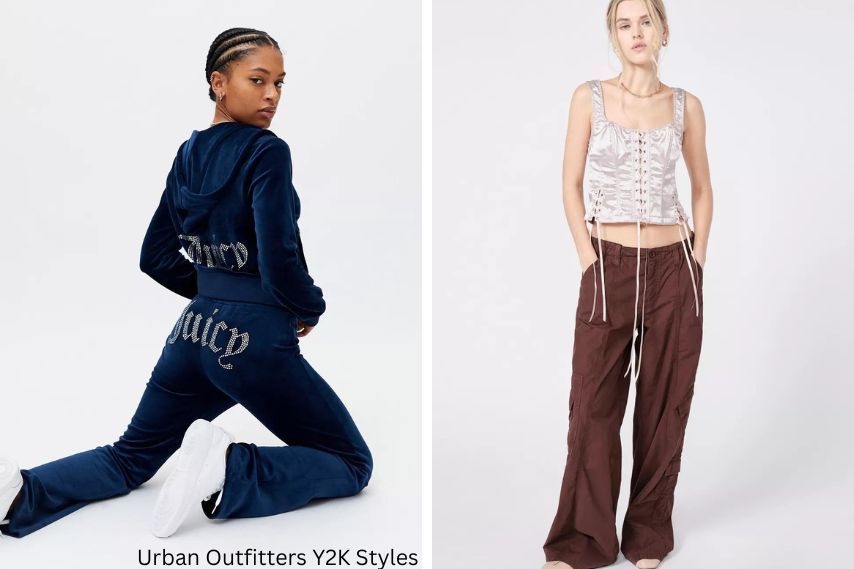

Appealing to Gen-Z Consumers
When appealing to Gen-Z consumers, companies must ensure that their offerings meet their needs and wants, while simultaneously aligning with their values and beliefs. Companies should focus on creating an experience tailored specifically for Gen-Z shoppers. The easiest way to achieve this is by providing convenience through easy access points such as mobile apps or websites that provide an immersive shopping experience complete with customized product recommendations based on past purchases and browsing history. Additionally, offering personalized discounts or loyalty rewards can help attract this new generation of shoppers.
Value Over Price
When it comes to shopping, Gen Zers prefer quality over price—and they are pushing this attitude onto their parents. Rather than looking for the lowest price tag possible, Gen Z shoppers want items that will last longer and provide increased value over time. They realize (often better than their parents) that investing in quality items now can save money down the road when those cheaper items inevitably break or wear out quickly due to poor craftsmanship or materials used in the construction of those products.
Return to in-store Shopping
Gen Zers grew up in an era where online shopping was king. They are comfortable using digital platforms to find what they want and make purchases quickly and easily. Consequently, that means they expect their parents to do the same, which includes everything from buying groceries to purchasing clothes or electronics. As a result, many older generations are becoming more comfortable with online shopping, which has been a boom for e-commerce companies. However, retail shopping is seeing a shift in Gen-Z shopping trends. According to a new survey, 47% of Gen-Zers prefer to shop in-store rather than online. Trends indicate they will compare products and reviews on their phones before purchasing products. Companies need to adapt and adjust to Gen-Z's new hybrid shopping preferences. Retailers need to serve both online and in-store shopping needs for this generation.


Conclusion
Gen-Z is quickly becoming one of the most sought-after consumer segments on the market today due to its size and purchasing power. Understanding how they shop is essential if your company hopes to remain competitive in the currently crowded marketplace. To do so effectively requires companies to look beyond stereotypes and challenge received wisdom about this misunderstood generation of shoppers. Learning to listen, paying attention to the right cues, and incorporating these insights into your strategy without overwhelming customers or compromising your offering will become increasingly important if you want your business to stay ahead of the competition.
It is clear that Gen-Z has had an enormous impact on retail over the past few years—and that impact only looks set to grow as this tech-savvy generation continues to age into adulthood. From influencing parents' purchasing decisions via social media posts, tutorials, and savvy comparison shopping tactics, this influential cohort has changed how people shop for goods. Wholesale buyers should take note of these changes and adjust accordingly for their business models to remain successful in the future.




